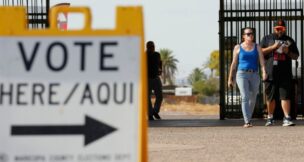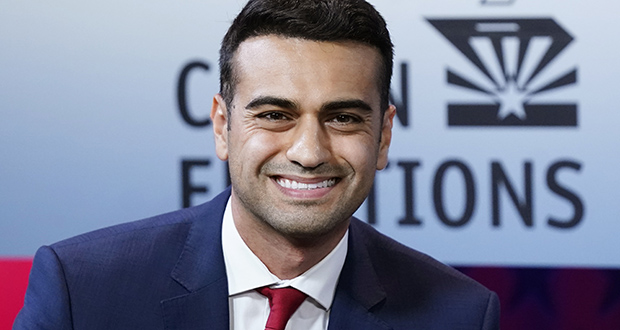4 budget bills pass unanimously; much work remains
Luige del Puerto//July 6, 2009//[read_meter]

The Arizona Legislature voted unanimously July 6 to pass four bills, one of which would restore funding to public education and add another approximately $400 million to schools.
The measures garnered bipartisan support, passing unanimously, first in the House and then in the Senate. The House voted 47-0 on all of the bills; the Senate voted 23-0 on some and 24-0 on others.
But lawmakers see the bills passed on the first day of the special session as a temporary fix. The bills give schools a budget to work with and would allow the state to qualify for its full portion of the federal stimulus money.
Last week, a deal between Republican legislative leaders and the governor disintegrated when lawmakers refused to pass a measure that would have allowed voters to decide whether to increase sales taxes by 1 cent.
When the sales tax deal fell apart, Brewer vetoed much of the Republican-crafted budget, including the section that outlines money allocated to public schools. That left the state temporarily out of compliance with federal stimulus rules and jeopardized about $1 billion in funding.
The veto meant the state would have been unable to make its monthly payment to public schools on July 15.
But lawmakers averted that by passing H2001, which restores $3.2 billion that was allocated as part of the Legislature’s original budget package, plus another approximately $400 million.
They also passed H2002, H2003 and H2004, which include changes to education policy, changes to public health care and limits on legislator subsistence pay during this special session to only days when the Legislature is in session. Generally, lawmakers receive a per diem every day during a session, whether the House and Senate convene or not.
Approval of the four budget measures is just one step in what is expected to be another grueling session as lawmakers grapple with one of the largest deficits in the nation.
“We’ve still got a lot of work to do, obviously,” Senate President Bob Burns said.
The Legislature has adjourned for now, but it will be back July 13 to resume the special session. Legislative leaders from both parties are planning to meet July 8 to decide their next step.
It’s not clear whether the Legislature will consider Brewer’s proposal for a sales tax increase.
The budget bills that passed July 6 equate to a $10 billion state budget, but revenue is still short.
Burns said he is open to allowing voters to decide whether a sales tax increase is necessary to close the budget gap. If voters pass the referral, it would mean some additional money in state coffers, but Burns said it wouldn’t be enough to cover the entire budget deficit.
If voters reject a sales tax increase, it would send a “clear message that it is time for us to get our budget in balance without counting on revenue,” Burns said.
The Legislature isn’t planning to schedule any budget hearings until an agreement can be reached among lawmakers. Democratic support could help Republicans overcome any veto by Brewer.
Much of the difference in funding is due to a 2-percent increase in education spending approved by voters in 2002.
There may still be cuts to education, though, before the special session ends. Republican and Democratic leaders from both the House and Senate will begin meeting July 8 to design a compromise budget agreement that receives support from members of both parties. The budget approved last week – which was supported only by Republicans – cut $220 million in K-12 spending.
“I would urge schools that as they look at this money, be very cautious in assuming that you can spend this,” Sen. John Huppenthal said. “I view the budget as a promise, but this budget is an empty promise. The money isn’t there. The cash isn’t there to back it up, and if schools assume this is money in the bank and they spend it, they are making a big mistake.”
This week’s leadership talks will center on the size and type of spending cuts, whether additional revenue is needed and how it could be generated and policy changes, said House Assistant Minority Leader Kyrsten Sinema.
“We are at least taking the first step in what is going to be a long step to resolve this budget crisis,” said Sen. Jay Tibshraeny. “I am glad to see the cooperation. I think it is a step in the right direction.”
-Reporter Jim Small contributed to this story.
Capitol Times exclusive interview with Brewer: Brewer praises budget deal, credits vetoes

















